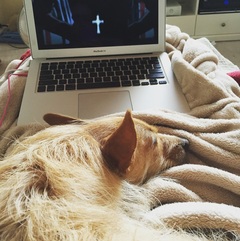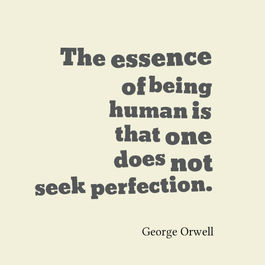|
by Camela Thompson My podcast co-host, Z.D. Gladstone, had a brilliant idea: Ask our listeners whether they preferred the Resident Evil movies or video games (we're recording the episode soon and there's still time to contribute). I cringed when she read off her call to action. It wasn't because I thought we'd have a hard time sorting through the responses. It wasn't because I thought we'd have a close argument. It was because I anticipated shouty, all caps rants. Nailed it. Pro Tip: I can tell how rational a fellow geek's argument will be by how loud the yelling gets. The more passionate and spittle fueled the rage, the fewer facts and science. As expected, I've heard and read the following variations:
I haven't heard much of an argument from those who prefer the movies. Personally, I didn't have a problem with the movies, but I hadn't played the video games when I watched them. I know, I know. You may now revoke my geek card. We'll just ignore that I grew up in the 80s heyday of linear game playing and loved it. I'll burn my Star Wars fan fiction and pretend I don't know things.
Now that we've gotten that dirty piece of business out of the way, I can tell you I was glad I hadn't played the games first. It allowed me to view the two things as separate and unrelated. I realize that I can't tell people who did play the video games first to pretend they hadn't happened or to take the two things as separate products. The problem is: They bear the same name. If they had been branded separately with no attempt at crossover, there would have been less rage. The other reason I understand why I can't ask people to separate the two? The book vs. movie phenomenon. I've lived it. So much disappointment. Those of us who cherish something built up in our minds have a really hard time coping with different interpretations (and heaven forbid they diverge from the original plot). When someone gets stabby about Resident Evil, I take a deep breath and remember how I feel about The Shining. Taken as a separate thing, the movie is a classic. Compared to the book, it's a heap of trash. Jack Torrance's character arc flat-lined before his first appearance on the big screen. The thing I loved about the book was absent. Here's what has been missing from the arguments I've heard about the Resident Evil debate: WHY. Was it the plot line? The directing? The acting? The story? The casting? If you do not like the movies, I would love to hear why. I would also love to hear from those of you who appreciated both or even preferred the movie. If you're in that last group, I would suggest emailing me or posting anonymously to avoid caps lock tirades in your direction. You have been warned...
0 Comments
by Camela Thompson "You need to talk to bookstores. When you interact with someone, get their email and sign them up on your mailing list. You sold books last night, but you should have done more!" My friend was right, but I had my handy list of excuses ready. "If my book is carried by a bookstore, people won't know to look for me. It just sits on a shelf with its spine out and no one buys it." "If my book doesn't sell, I get charged back." "If I ask for someone's email, I'll annoy them." These things may or may not be true. Deep down I know I'm not going to sell books if I don't try. Putting them on sale online gets me traction that may last up to two months, but it dies off. Social media is an awesome tool and I will keep on posting and podcasting, but these things aren't generating direct sales. There's a reason why well known authors still go on tour and do book signings, even though people know to look for them. Word of mouth can't gain traction if people don't know about a new book. I've worked for sales organizations and helped people excel at their jobs by providing them with information to help them target potential customers. I have the utmost respect for sales people who spend their days approaching people they've never met. They get told 'No' eight or more times for every time they hear 'Yes.' It's a job I have said over and over that I can't do. Now it's exactly what I should be doing. I'm terrified. When it's all said and done, it's time to try new things. I'm just not exactly sure where to start. This is my idea of a good time. Maybe it's time to take another Marketing for Introverts class.
The good news? I've been writing again, even if it's just a chapter at a time here and there. I'm over the moon the ideas have decided to start happening again. The bad news? None were forthcoming for this week's blog post. I probably could have come up with one thousand words on writer's angst, but I figured that if I'm tired hearing about my angst, the world wouldn't miss it. Instead, I present an adorable picture of Annie: Cheap ploy? Absolutely.
Next week, I'll try to think of new material. Be sure to check out this week's podcast on Killing the Undead! by Camela Thompson Be warned. I'm feeling a little bit ranty today. I just finished a book I really enjoyed. In fact, I couldn't put it down. I read until my Kindle ran out of battery charge. I even looked forward to my commute to and from work on public transit because it's a chance to read. That is really saying something considering it was in the 90s which only intensified the various smells imprinted into the vinyl seats. So, what's the issue? There was one thing that nearly ruined the book for me, and it's my biggest pet peeve as a reader: The protagonist was perfect. She could do everything well. Her perfection was explained by lessons gleaned throughout her life, but the list of awesomeness was never ending. I get the impulse, and one of my beta readers pointed out that I've been called on it during first draft reviews. As a writer with feminist overtones, I want my female protagonist to thrive on her own. I don't like having her ask for help. But. Sometimes it makes sense. A character new to surviving in a harsh environment may not know everything about fighting, weapons, or even legal representation. Let's not forget there are many forms of strength, including knowing when to ask for help. A character can appear weak, but their strength may be in what they sacrifice for another to thrive.
I've read historical fiction novels with characters who excel at everything. It's very prevalent in spy thrillers. Just look at James Bond--his only flaw was misogyny. In the particular book that fueled this tirade, a young woman had perfected everything from learning new languages to spying to throwing dice. It made sense for her to excel at some things, but there was no need to call out others. When she excelled at something as mundane as efficiently moving through crowds, it grew frustrating. Other readers have expressed similar frustration when the main character is a stunning beauty or a gorgeous man who also happens to be an expert in all things. It's easier for me to relate to characters who have physical flaws (or at least is self-conscious) and have uncertainties. It makes the hero's journey more interesting and the character arc has more room to grow. What are your feelings? Are you bothered by perfect protagonists, or do you enjoy a shining hero? |
Camela ThompsonFreelance writer and Dark urban fantasy author featuring vampires with bite. My BooksCategories
All
Archives
July 2020
|




 RSS Feed
RSS Feed